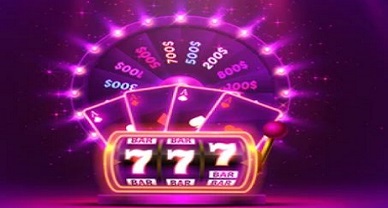Online Gaming Applications In India
Introduction
Online gaming applications have been on the rise since the past few years, especially among youngsters. With upgradation of technology, people keep looking for new ways to keep themselves entertained. Online applications can be played on mobile phones, computers or any other type of electronic device provided that it can connect to the internet.[i] These games may be simple or complex, and are available in many genres, be it action, mystery, simulation, puzzles, etc. The Indian government defines online gaming as “a game that is offered on the internet and is accessible by a user through a computer resource or an intermediary.” Some examples of such platforms are Winzo, Dream11App, Rummy Circle App, 8 Ball Pool App[ii], etc. With these games becoming so popular, questions about their legality are bound to arise.
Legality Of Online Gaming Applications
Although these online gaming applications are legal in India, it is subject to restrictions and regulations. The legality of online gaming comes under the ambit of Public Gambling Act, 1867 which makes it illegal to run a gambling house. However, there is no specific mention of online games, therefore, it is also governed by the Information Technology Act of 2000. The type and nature of the game can largely affect whether it is legal or not. Many online games such as poker, rummy and fantasy sports are legal in India.[iii] Some of them encourage betting and wagering which are very similar to gambling, therefore, many of these games are constantly under scrutiny regarding their legality.
[Image Sources : Shutter stock]
Gaming Or Gambling?
The main difference between gaming and gambling is the “element of skill” required for that particular activity. They require human skill and intellect which make it legal, however if the game is based on chance it is considered to not be legal. Such applications are more like gambling platforms and are therefore punishable in India. Gambling puts a lot of pressure on the human mind, leads to financial instability and can be quite addictive. Even if elements of gambling exist in a game, prior licenses and permits from proper authorities are taken. Both gambling and online gaming might involve a financial component but gambling is all about staking money where the outcome would depend upon chance and not human intellectual skills. The Public Gambling Act, 1867 penalizes those who run gambling houses with a fine of Rs. 200 and imprisonment upto 3 months.
States Laws Regarding Online Gaming
Both Telangana and Andhra Pradesh have banned online gaming platforms involving real money in 2020. Also, the government of Karnataka has restricted its people from games of chance (wagering, betting, gambling) by amending its online gaming laws.
The Nagaland Prohibition of Gaming and Promotion and Regulation of Online Games of Skill Rules was laid down in 2016 which regulate such games to establish that they do not come under the ambit of illegal activities.
The Sikkim Online Gaming Act of 2008 aimed to put a check on the exploitation of online games by imposing taxes on them. Though similar acts were passed in various states, they all contain loopholes and shortcomings.
It Rules Developed For Online Games
The Information Technology (Intermediary Guidelines and Digital Media Ethics Code) Rules, 2021 which provided the original guidelines to regulate online gaming problems is suggested to be amended in 2023 to keep up with the new upcoming modern issues.
The government shall set up a three-tier redressal mechanism in which experts from the fields of health, education, information technology, etc. will be comprised. The rules will define the particulars of a permissible online real money game application and they will have to be authenticated by relevant bodies.
KYCs (Know Your Customer) will be used for verification of the users before allowing any transaction of money to the online application. The Group of Ministers will be set up to impose GST at the rate of 18% in casinos and 28% for horse racing[iv].
Case Laws
Varun Gumber V Union Territory of Chandigarh (2017)[1]
In this case, the petitioner wanted to get the online fantasy game Dream 11 to be banned since he had lost around $50,000 on the application. According to him, it was merely a game of chance and uncertainty. The respondent on the other hand argued that the person using the application should have considerable knowledge regarding the sport which he has opted for. A player creates a virtual team and contends against multiple participants. The outcome of the game depends upon real life matches where professional cricketers play. The best players who performed in that match win. The court held that Dream 11 is not a mere game of chance and requires sufficient amount of skill.
Galactus Funware technology v State of Karnataka (2022)[2]
The Karnataka government amended its existing laws regarding gaming, banning and criminalising all types of betting, wagering and gambling in a game of chance or skill when played with money. Those games where no transaction of money is made were still legal. The Karnataka High Court stated that this is in direct contradiction to the Section 176 of the Principal Act. There exists a marginal difference between “game of chance” and “game of skill.” It also said that there was no reason to ban and criminalise all games involving a monetary component.
CONCLUSION
There is a very fine line between online gaming and online gambling. Although efforts are being made and laws are being enforced to curb illegal activities and promote online gaming applications at the same time, loopholes can still be found. People should be made aware of the demarcation of legal gaming applications and actual gambling. While online games keep us entertained and help us connect with new people, they also have adverse effects. Young minds can often be manipulated and they get addicted to such games if not supervised. They can lead to over-competitiveness, slower cognitive functions of the brain and financial risk as well. New laws need to be enforced, existing laws need to be amended and followed up to ensure that the online gaming industry does not get exploited and the genuine applications do not suffer.
Author: Mudit Sood, in case of any queries please contact/write back to us at support@ipandlegalfilings.com or IP & Legal Filing
[1]https://www.casemine.com/judgement/in/596dd1ee4a93260b5a0444e0#:~:text=Conclusion%3A,considerable%20skills%20by%20the%20user.
[2]https://blog.ipleaders.in/laws-on-online-gaming-in-india/#Galactus_Funware_technology_v_State_of_Karnataka_2022
[i]https://www.duelit.com/online-gaming-applications-a-free-guide-to-have-fun/
[ii]https://earnkaro.com/blog/gaming-apps-to-earn-money/
[iii]https://www.linkedin.com/pulse/online-gaming-apps-legal-india-manoj-singh#:~:text=Online%20gaming%20apps%20are%20legal,which%20the%20player%20is%20located.
[iv]https://blog.ipleaders.in/laws-on-online-gaming-in-india/#:~:text=In%202020%2C%20Telangana%20and%20Andhra,gambling%2C%20betting%2C%20and%20wagering.



